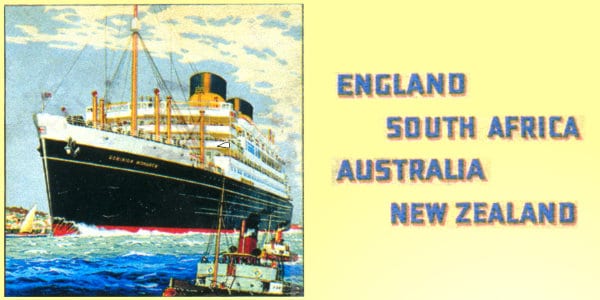This is story #3 in the series “Where Exactly is Home?”. The author recommends you read them in order.
Introduction:
“Where Exactly is Home?” follows the story of my parents, my two younger brothers and me, Susan, who emigrated from war-battered Britain, in the mid-late 1950’s, to Southern Rhodesia, Africa.
The effects of this move on our family were huge, as we struggled to adapt to such a different way of life. Only after further upheaval, and more long-distance travelling, did our family eventually settle in the city of Salisbury, Rhodesia.
However, we did not know then that we would not remain there for the rest of our lives, either.
When the family first went to Africa, I, Susan, was 9 years old. My two brothers, John and Peter, were almost 7 and 4, respectively.
Nowadays, as seniors, John and Peter live in England. I live in Canada. Throughout our lives, we have both benefitted from, and suffered because of, our somewhat unusual childhood.
I, for one, still sometimes ask myself which country represents home to me.
This is a series of stories under the title “Where Exactly is Home?” – I recommend you read them in order, starting with story #1.
3. Leaving England, April 1957
What an almighty mess, and that was before my mother dropped the can of paint! Tea-chests, strong boxes, made originally for transporting tea, were everywhere in the front room of our house in east London, England. We three children, aged nine, seven and three, were running around in a state of excitement, knowing that we were leaving, soon to see our father again after five months’ of separation. My mother, dressed in a suit, was frantically painting our name, cabin number, and destination, on the last pieces of luggage, when the taxi arrived to take us on the first part of our journey. In her haste to gather us all up, my mother dropped the can of paint, spilling it down the front of her skirt. A quick clean up, and we were on our way again, in a taxi, heading to the port of London. There we would meet up with an aged great-aunt of my father’s, who, like us, was to board the Union Castle Line ship, the SS Braemar Castle, bound for Cape Town, South Africa.
Aunt Jane was in her 80s, relatively frail, though her doctor had said she was strong enough to travel to South Africa, to visit her daughter, Iona, and son-in-law, David, who had invited her to come over for a holiday. They lived in Durban, on the east coast, and would travel down to Cape Town by car for a few days, along what was called the Garden Route, to meet Aunt Jane. They were happy to know that my mother would be looking after Jane during the trip, which lasted for almost three weeks. To that end, Jane shared a cabin with me, whilst my mother shared with John and Peter. However, my mother was very careful to look after Aunt Jane, making sure she was comfortable at all times. Most passengers assumed that my mother was Aunt Jane’s daughter.






Alison Watson3 years ago
A positive paean to women.
Mum shows spectacularly how women cope with all the add-ons …whether justified or not…. the entire state-of-being, of course, absorbed by the eldest child by simple osmosis.